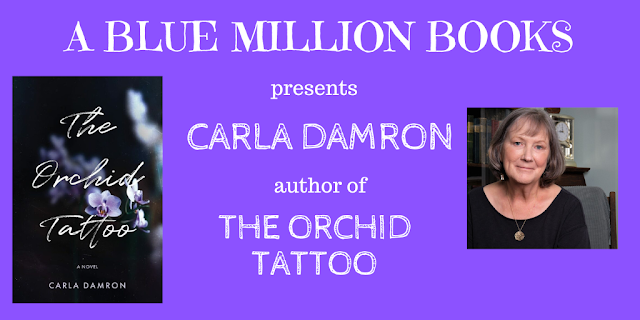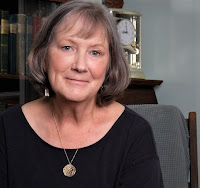The two newcomers surveyed the squadroom. One of them looked vaguely familiar, as if he’d been in the newspaper lately. He was in his late thirties, with longish dark hair slicked back from a high forehead and the sort of angular cheekbones that spoke of a strong indio heritage. He wore a black leather blazer over a black tee shirt and cuffed pants. There was a slight bulge under the left arm.
Emilia stopped typing. The man exuded power.
The other man was bigger and blockier, with a square chin and a nose that had been broken too many times. He was also well dressed in expensive casual clothing.
“I’m looking for a Detective Cruz,” the black-clad man announced.
Emilia felt all eyes shift to her. But before she could say anything Silvio crossed the room. “Detective Franco Silvio,” he said to the man in black.
“I know who you are,” the man replied. “I’m here to talk to Cruz.”
Emilia slowly stood up.
“In the office.” The man jerked his chin at Emilia and then he and his cohort pushed past Silvio and headed into el teniente’s office.
Silvio swung over to Emilia. “What the fuck’s this?” he hissed.
“I don’t know,” she flashed back. Rico came to stand next to her and Silvio gave him a what-the-fuck-do-you-think-you’re-doing look but Rico stood his ground.
The three of them went into the office. The man in black sat in el teniente’s chair and jiggled the locked desk drawers. “Shut the door,” he said without looking up.
Silvio complied and the man came out from behind the desk.
“Do you know who I am?” he asked Emilia.
Emilia gave her head a tight shake. With five people in the room it felt crowded and Emilia felt that cold spurt of wariness she always did when she was the only woman in a crowd of unfriendly men. “I’m sorry, señor.”
“I’m Victor Obregon Sosa, the head of the police union for the state of Guerrero,” he announced. “This is my deputy, Miguel Villahermosa.” The other man didn’t acknowledge the introduction but it was clear Obregon had not expected him to do so. “We’re here to make sure that the investigation into Fausto Inocente’s death is handled properly.”
Rico bristled, as if he was offended that the union would butt in. Emilia waited for him to say something stupid but Silvio shot him a murderous glare and Rico kept his mouth shut.
“We’re barely two hours into the investigation,” Silvio said, obviously making an effort to keep his temper. It had been less than 40 minutes since the call to the chief of police. “It came in as a routine dispatch call. Cruz and Portillo were given the assignment, made the discovery, locked down the scene, and notified the next of kin.”
“So let’s hear it,” Obregon said and flapped a hand.
Silvio nodded at Rico.
“We got a report of a drifting boat,” Rico began. “It was off the beach at the Palacio Réal hotel--.”
“No,” Obregon interrupted. He folded his arms. “Cruz.”
Emilia stole a look at Rico. His face was like thunder. She swallowed hard. “As my partner said, the call was to investigate a drifting boat off the beach at the Palacio Réal. The hotel chef and manager saw it from the beach early this morning, thought there were bloodstains on the side. We met Water Patrol at the hotel and they towed in the boat.” She took another breath and tried to sound as professional as possible. “Lt. Inocente was in the bottom of the boat, with his head encased in a plastic bag. It was pulled tight and knotted around his neck. When the crime scene technician opened the bag it appeared that the back of his head was caved in. We’ll know more when the coroner examines the body.”
Obregon nodded. “Any other injuries?” he asked her.
She shook her head. “No bullet holes in the hull of the boat, no evidence of a struggle. Blood on the deck under the body, likely from the head wound. Blood had also soaked through his shirt and there was some on the upper edge of the boat hull. Technicians took samples but they’ll probably all come back as his.”
“Anything else?”
“The boat is his. His wife gave us the registration papers.” Emilia paused, discomfited by Obregon’s stare. The tension in the room was palpable. She glanced at Rico and plowed on. “They live in the same area as the hotel. The wife wasn’t much help regarding his whereabouts last night. The last person who could pinpoint his whereabouts last night was their maid. Said he got a phone call late in the evening and went out. Took the boat keys but nothing else.”
“Wife didn’t see him?”
“She had gone out to a charity event,” Emilia said. “Of course, we’ll be checking to verify her story.”
Obregon tipped the chair back. A thin silver chain showed inside the loose neck of the tee. His skin was smooth and his jaw was tightly defined. He looked like someone who worked out a lot. And liked showing off the results.
“So, Cruz, tell me how you’re going to proceed,” he said, as if Rico and Silvio weren’t even in the crowded office.
“We’ll set up a hotline and get detectives out talking to everyone at his apartment building and the hotel to see if we can piece together his last hour. He was apparently close to his brother. We’ll talk to him as well. Look at his phone records to see if we can find out who the late night caller was. Coroner’s report. Forensics on his laptop. See if we get any prints off the boat.”
Obregon nodded and straightened the chair. Even that simple movement belied grace and power and focused intent. “This is how the investigation is going to go.” He pointed at Emilia. “You’re appointed acting lieutenant. Do whatever you want with these clowns”--he snapped his fingers at Silvio and Rico--“and the other cases you’ve got but I want you to personally head the Inocente investigation.”
Both Silvio and Rico froze as if they couldn’t believe what they’d just heard.
“Chief Salazar has already been notified. You’ll report directly to my office every few days until this thing is over.” Obregon indicated Villahermosa who’d remained by the door during the entire conversation, like a large, menacing statue. Obregon’s deputy was even bigger than Silvio, with legs the size of tree trunks. Another former boxer, no doubt. “Villahermosa will be on call to assist as well.”
The tension in the room was now tinged with menace. Emilia struggled to keep breathing normally.
“Cruz is a junior detective.” Silvio’s voice was tight. “She doesn’t have the experience or the seniority to be acting lieutenant.”
“Cruz has my full support,” Obregon said.
“With respect,” Silvio said. “We understand that. But she’s not the senior detective here.”
“Nobody’s asking for your fucking opinion,” Obregon blazed. His eyes drilled into Silvio. “Cruz is in charge as of now. Thanks for coming.”
Villahermosa pulled open the door and jerked his chin at Silvio and Rico. They both walked out.
Emilia stood rooted to the spot as her mind jumped around. Why had he chosen her? Did the union have the authority to put her in this position?
Obregon motioned to Villahermosa and the man left the office, too. And then it was just Obregon and Emilia. He walked round the desk again and rifled through a few of the papers on the desktop.
“The mayor has a press conference tomorrow and she’ll want to say something about the Inocente investigation,” Obregon said as he looked through the papers. “Be nice if you could have this all wrapped up by then.”
Emilia felt as if she’d been gutted. She forced a single word out around the tightness in her throat and the dryness in her mouth. “Sure.”
She must have sounded sassier than she felt because he looked up and laughed. “At any rate, we’ll meet beforehand to review what you’re going to tell her. Let’s say tomorrow 4:00 pm.”
He glanced at his watch, an expensive-looking silver job with three knobs on the side. “That gives you more than 24 hours to come up with something significant.”
Emilia licked her lips. “I won’t even have the phone records by then.”
“You’ll have something for the press conference,” Obregon said nastily. “Some nice sound bite about the diligence of the Acapulco police and how they’re sad but determined.”
“You want me to say this to the mayor?”
“Inocente was as dirty as they come.” Obregon turned his attention back to the overflowing inbox. “You’re going to turn up a lot of bad things. When you do, you tell me or Villahermosa. Not the other detectives and not the chief of police. You don’t arrest anybody, you don’t get yourself shot, you don’t do anything. I’ll take care of that part.”
Emilia’s heart hammered like a warning bell in her chest. “I think Silvio should be in charge of this investigation. He’s the senior detective.”
“If you find that the wife popped him,” Obregon went on. “And you know it beyond a shadow of a doubt, go ahead and arrest her. Otherwise come to me first. Nobody else.”
“Did you hear what I said?” Emilia said.
“I’m trying to clean up the police in this state,” Obregon said as he plucked a folder out of the box. As he flipped it open his hands knotted with veins, as if he had a lot of practice clenching and unclenching his fists. “I’m sick of the corruption and men like Inocente making deals with the cartels. People like him protect their empires, feed it with drugs and private armies. When you find out who killed Inocente we can probably roll up whatever cartel he was in bed with.”
“Why me?” Emilia asked. She was talking to his bent head as if he couldn’t be bothered to look her in the eye. The warning bell was deafening and Emilia knew she had to get herself out of this situation. Silvio should have this job. Or Loyola. They’d know how to deal with Obregon as well as how to conduct a major murder investigation. “You heard what Silvio said. Almost all the detectives out there are senior to me. There will be a lot of resistance. From all the other detectives. Enough to keep the investigation from going forward.”
“You’ll handle it.” Obregon read something else out of the inbox.
“You don’t understand.” Emilia slammed her hand down on the desktop to get his attention.
“Good,” he said, finally looking up from whatever he’d been reading. “You’ve got a fire in the belly. You get those detectives talking to everybody in that fucking hotel. Everybody who lived near him. Whoever even heard of Fausto Inocente. And if the boys don’t do what you say, shoot one of them. The rest will fall in line.”
He was serious.
“I don’t know who you think I am, señor,” Emilia gulped. “But I’ve only been a detective for two years. Mostly I’ve handled the crap cases. You need a seasoned investigator on this one. Get one of the other detectives to be acting lieutenant.”
“You’ve made quite a mark in two years, whether you know it or not,” Obregon said. “Recovering the Morelos de Gama child was a big deal.”
“The media made it out to be more than it was,” Emilia parried. “The case was handled in Ixtapa, not here.”
“We’ve been watching you.” He tossed the file onto the desk and regarded her. “Our girl detective. You’re a hungry one. You want to get someplace.”
“I’m sorry,” Emilia said. “Not this.”
“You’re the only woman here.” Obregon’s glance was searing.
“This is because I’m a woman?”
“Yes. Everybody knows women are less corrupt.” Obregon came around the side of the desk and Emilia resisted the urge to shrink away from him. “You do this or you won’t even be able to be hired on as the lowliest transito cop in any police force in this state.”
He leaned down and put his face close to hers. “You know he was corrupt. Up to his neck in shit. Well, I’m the person putting an end to it in the state of Guerrero, and you don’t get to choose sides.”
Emilia didn’t move. It was hard to breathe. He smelled like leather and cigarettes and an unexpected whiff of spicy cologne.
“I’ll be calling you on this office phone so you’d better move in today.” Obregon stepped back and ran an appraising eye down Emilia’s body. “And look good tomorrow. You want the mayor to take you seriously.”
“I’m junior around here,” Emilia said stubbornly. “You want a fast result, you get Silvio.”
“Maybe I wasn’t clear enough for you, Cruz.” Obregon’s voice was flat. “If the union puts you and your mother out on the street you won’t work as a whore in this town much less as a transito. So you show up and be nice to the mayor and tell her something clever for her little television press conference. How you’re working night and day to solve this terrible crime and keep Acapulco safe for the tourists.”
They stared at each other for a long moment.
You and your mother struck home for Emilia, as no doubt it was intended to.
“I want doors on the stalls in the detectives’ bathroom,” Emilia heard herself say. “And a copier that works. And paper for it. And ink.”
The corner of Obregon’s mouth twitched. “Anything else?”
“I’ll let you know,” she said tightly.
Obregon handed Emilia a card. There were two cell phone numbers printed on it. “You only use these numbers to get in touch with me,” he said.
Before she could respond he pulled open the door and shouted “Attention.”
Emilia followed Obregon as far as the doorway. The detectives were all there, as was Villahermosa. Obregon strode to the center of the squadroom, commanding everyone’s attention.
“Most of you know me. I am Victor Obregon Sosa, the head of the police union for the state of Guerrero.” He revolved slowly and most of the detectives stood a little straighter as his eye rested on them for a moment, creating the same malice-tinged tension he’d first brought into the squadroom. “As you know, Lt. Inocente was found dead this morning. His death will be investigated as a homicide by this unit until his murderer is found and dealt with.”
There was a low sound of shuffling feet. Somebody coughed.
Obregon jerked his chin in the direction of Lt. Inocente’s office where Emilia leaned awkwardly against the doorjamb. “Detective Emilia Cruz will be acting lieutenant for the duration and in charge of the investigation into Lt. Inocente’s death.”
Eyes swiveled to Emilia. Rico was openly shocked as he sat on the end of his desk. Silvio’s face was like granite. He was the only one who kept his gaze on Obregon.
Emilia didn’t acknowledge the stares. She kept her eyes on the ancient copier.
Several of the detectives shifted uncomfortably in the silence. “One of our own has died,” Obregon said. “And we will conduct a thorough investigation, find whoever did this, and punish them according to the full measure of Mexican law.”
He nodded at Emilia. “See you tomorrow, Cruz. Four o’clock.” His eyes revealed nothing. “Good luck.”
Obregon and Villahermosa walked out. As soon as the door shut behind them the squadroom erupted into a bedlam of shouting.
***
Excerpt from Cliff Diver by Carmen Amato. Copyright 2021 by Carmen Amato. Reproduced with permission from Carmen Amato. All rights reserved.
Following a thirty-year career with the Central Intelligence Agency, Carmen Amato writes mystery and suspense, including the Detective Emilia Cruz police series set in Acapulco. Emilia is the first female police detective in Acapulco, confronting Mexico’s cartels, corruption and social inequalities. The series recently won the Poison Cup award for Outstanding Series from Crime Masters of America in 2019 and 2020, the Silver Falchion Award for Best Short Story/Collection of 2019, and was optioned for television.
Originally from upstate New York, Carmen’s experiences in Mexico and Central America launched her fiction career. Carmen is a recipient of both the National Intelligence Award and the Career Intelligence Medal.



















